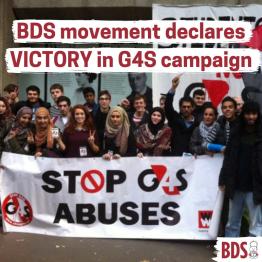17 EU members take action against corporate complicity with Israeli crimes
- Measures are welcome but Israel's persistent human rights violations must be met with more impactful consequences
At least 12 more European governments published online guidance warning their citizens and businesses about risks involved in trade and other economic links with illegal Israeli settlements on Thursday and Friday, bringing the total number of countries to publish such advice to 17.
The statements warn businesses about the economic, legal and reputational "risks" of economic ties with illegal Israeli settlements and state that firms should be aware of the "possible abuses of the rights of individuals" such transactions may contribute to.
The announcements are part of a wider effort coordinated among European states prompted by lobbying by civil society organisations such as the European Coordination of Associations for Palestine and MEPs, who have been arguing that governments should do more to prevent European firms from trading with or providing services to illegal Israeli settlements.
Rafeef Ziadah, a spokesperson for the Palestinian Boycott, Divestment and Sanctions (BDS) National Committee said:
"European governments are starting to respond to civil society lobbying and public opinion by taking welcome steps to end corporate complicity with Israel's settlement regime."
"Hopefully these announcements will contribute to the quickly shifting attitudes towards illegal settlements among investors and businesses, and European firms such as G4S, CRH and Volvo will end their participation in Israel's settlement regime."
"But against the backdrop of Israel's continued collective punishment of Palestinians and its on-going efforts to colonise Palestinian land, these new steps seem disproportionately weak."
"Israel’s complete disregard of basic human rights and its sabotage of every effort to reach a just peace based on international law must lead to real, not just cosmetic, consequences.”
"By maintaining its association agreement and deep relations with Israel, the European Union sends a clear message to Israel that it can continue to act with impunity. The EU should suspend its association agreement with Israel until it complies with international law."
"We call on all governments across the world to meet their legal and moral obligations to hold Israel to account. They should implement a binding ban on economic links with settlements, impose a military embargo and suspend free trade agreement with Israel."
"Governments must implement the ruling of the International Court of Justice and meet their legal obligation to not recognise or assist Israel's settlement regime. At a minimum, these means a legally binding ban on economic links with Israeli settlements."
The International Court of Justice ruled Israel's apartheid Wall and settlement regime to be illegal ten years ago this Wednesday. The ruling also stated that states have a responsibility to hold Israel accountable and to not provide Israel's illegal acts with assistance or recognition.
Tougher action needed to tackle corporate complicity
The 12 countries to publish guidance this week in a move coordinated at EU level are Portugal, Austria, Malta, Ireland, Finland, Denmark, Luxembourg, Slovenia, Greece, Slovakia, Belgium and Croatia.
France, Italy and Spain published similar guidance last week, while the UK and the Netherlands took similar steps last year.
Many European companies directly participate in Israel's violations of international law. UK security firm G4S supplies services and equipment to Israeli checkpoints and prisons, while Irish company CRH provides materials used in the construction of Israel's illegal Wall and settlements, for example.
Ziadah spokesperson added:
"The guidance published by EU countries is a welcome but non-binding step. European governments must do more to prevent corporations headquartered in their country from participating in Israeli crimes, including by proactively addressing the worst cases of corporate abuses of Palestinian rights and prosecuting companies that help Israel to violate international law."
"The impact of these measures is further undermined by the fact that other economies are still lacking even these first, basic steps to reduce complicity in the Israeli settlement enterprise. The BNC is concerned about Israeli announcements to shift investments and exports to emerging markets in the global south."
In September, the Dutch government intervened to stop engineering firm Royal HaskoningDHV from becoming involved in a settlement infrastructure project, an example Palestinian campaigners say other countries should follow.
In June of last year, the European Union implemented new guidelines stating that the EU cannot recognise Israeli sovereignty in the occupied Palestinian territories and preventing entities based in settlements from receiving EU grants and Israeli bodies with operations in settlements from applying for EU loans.
Civil society campaigning forces firms to address complicity
On Friday, Dutch pension giant ABP divested from two Israeli military companies, becoming the latest in a long line of European funds to exclude companies over their participation in Israeli crimes.
UK high street chain John Lewis announced last week that it shall no longer stock products from SodaStream, an Israeli company that operates in an illegal Israeli settlement, while a SodaStream shop in Brighton in the UK has been forced to close after 2 years of weekly demonstrations by local campaigners.
Campaigning pressure has persuaded some retailers now refuse to stock produce of illegal Israeli settlements and exports of fresh produce from settlements to Europe have dropped by up to 50%. But many retailers continue to trade with companies that operate in illegal Israeli settlements.
British security firm G4S last month announced that it does not intend to renew its contract with the Israeli Prison Service when it expires in 2017. The decision follows more than 2 years of campaigning that has seen the company lose millions of dollars of contracts and mainstream investors such as the Bill Gates Foundation and the US United Methodist Church exclude the company from its investment portfolio.
The campaign against G4S is set to continue until it completely ends its complicity with Israeli crimes.




